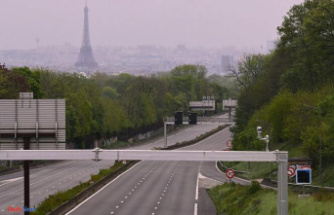The Minister of Education and Vocational Training, Pilar Alegría, is going to explore for the first time in non-university education the formula of giving economic incentives to teachers in exchange for obtaining good results, a measure that, according to scientific evidence, improves the quality of the education system. It will begin with the teachers of the public centers of higher artistic education, who will have better salaries if they contribute to research or artistic creation. Teachers may even have paid leave to replace their school day with these activities.
It is one of the main measures of the new draft of the Higher Artistic Education Law that was approved this Tuesday in the first round in the Council of Ministers. For the first time, the regulation regulates this formative modality in which 140,000 students are enrolled and taught by 14,000 teachers from 689 public and private centers. As explained by the Secretary of State for Education, José Manuel Bar, these teachings "had been left in no man's land", halfway between the school, the FP and the university, with many problems of places, lack of coordination or absence of teachers . The objective is for the higher ones to maintain their own character but bringing them closer to the model of the universities, since they lead to equivalent titles, although "without being absorbed by them".
Although Spain does not stand out too much in educational indicators, it has a very good international reputation in these disciplines. It is, for example, the country that contributes the most musicians to the Mahler Youth Orchestra, surpassing countries like Germany. Valencia is also a world benchmark in the teaching of music, as evidenced by the Berklee College of Music, the best music school in the world , has located its only campus outside the US in this city.
After promoting the arts in schools (Alegría has given Artistic Education almost the same weight as English in the Primary curriculum), the Government is going to protect this discipline at a higher and professional level. It will promote the Higher Council for Artistic Education, whose plenary session has not been convened since 2013, and will create a special group within the Education Sector Conference.
It will also give the higher conservatories of music and dance and the schools of dramatic art, design, conservation and restoration, plastic arts and audiovisual arts (this specialty is new) "academic and management autonomy", in such a way that they are allowed to leave to function as secondary schools, as was the case now.
These are the main novelties of the norm, which is expected to be approved in the second round of the Council of Ministers at the end of March so that it reaches the Cortes that month, where it will also have urgent processing:
The autonomous communities, on which the teachers depend, will be obliged to promote "the research activity and dedication" of the teaching staff of their public centers "and their contribution to research or artistic creation". They will do so "by means of the corresponding economic and professional incentives", in accordance, yes, with the regulations governing the remuneration system for teachers.
In addition, they may give teachers leave, "without reducing their salaries", for "the occasional replacement of the school day" by research or artistic creation activities. There will also be other unpaid permits, with reservation of the job, with a maximum duration of two years.
Sources from the Ministry of Education emphasize that this is the first time that this possibility has been opened, that the development of the law that the communities must carry out is pending, and that with this option the professors of higher artistic education "are closer to the university students" in matter of artistic creation or research.
Union sources celebrate this old demand of the sector. "We have been asking for a long time for teachers to have what they now do in their free time be recognized as teaching work hours. A teacher, for example, who has to travel because he plays in a national or international orchestra, should have time to go to concerts when necessary and not like now, when he has many problems being absent from the classroom," they point out.
Currently, Music and Performing Arts professors have a level and regulation similar to that of their counterparts in Secondary, although they perform very different tasks and at different levels. On the other hand, the Plastic Arts and Design and Dramatic Art faculty have not yet established a norm that allows their access to chair teaching positions despite equally teaching grade levels.
The idea of the Ministry is to equate these professors to the university ones. Although the body of workshop teachers will be maintained, four new teaching bodies will be created: professors and professors of higher artistic education and professors and professors of professional artistic education. The objective is that there is a general improvement in the salaries of higher artistic education teachers, although this will be included in the regulatory development of the law, they point out in Education.
Currently, students of higher artistic education have the right to apply for scholarships and aid granted by the State, but they do not have the same compensation for the payment of tuition that university students enjoy. As soon as the law is approved, they will have "the same consideration, including the compensation of public prices for academic services." In other words, they will have free rates. According to data provided by the Ministry, this measure would facilitate, in the current situation, 7,370 students.
Alegría explained in the press conference after the Council of Ministers that these students were to date "receiving scholarships as high school students and from this law they will have the recognition of university scholarship holders."
Higher artistic education will be closer to the university on issues such as the mutual recognition of ECTS credits, the occasional collaboration of teaching teams, the occasional use of the respective facilities and doctoral programs, which depend on the campuses. But they will not be integrated into them, as is the case in almost all countries throughout Europe, where Performing Arts universities have been created.
German centers that were previously known as higher technical schools have been integrated over the years as any faculty within a university or have given rise to universities of the arts. There are higher Design studies at universities in the United Kingdom, Portugal or Italy. Also in Anglo-Saxon countries the faculties of Arts belong to the university, as it happens in Spain only in private universities. Here we go to the extra-university model similar to that of France, where higher education centers have remained as independent entities with their own space.
"The relationship established between the centers and universities will not alter the organic and functional dependency of the former and must respect at all times the powers that each possesses," says the law. Schools and conservatories "may be attached" to universities through collaboration agreements if they wish, but "they will gain pedagogical and organizational autonomy," according to the Ministry.
The minister summed it up like this: "We continue to maintain the character of artistic education, but we are making progress so that they are closer to the university model."
Regarding the titles, the Ministry assures that "confusion and uncertainty" was created when in 2012 a Supreme Court ruling, at the request of an appeal from the University of Granada, said that higher education titles could not be called bachelor's or bachelor's degrees. master's degree, because this denomination was confused with university degrees, although at the same time it recognized them as "equivalent" for all academic and professional purposes.
The law now makes it clear that these titles are integrated into the framework of qualifications for higher education "at the same level as the university degree and the university master's degree, to which they will be equivalent for all purposes". Thus, the bachelor's, master's and doctoral degrees of higher artistic education.
"To understand each other", Alegría explained, "a young person who finishes his violin studies, for example, in a music conservatory and wants to apply for a place in the Berlin Philharmonic Orchestra now needs the regional Administration to generate a certificate. This , which generated many inequalities, ends with this law. The title of the conservatory will be valid throughout the country and throughout the European area of higher education, where they will be recognized".
According to the criteria of The Trust Project












